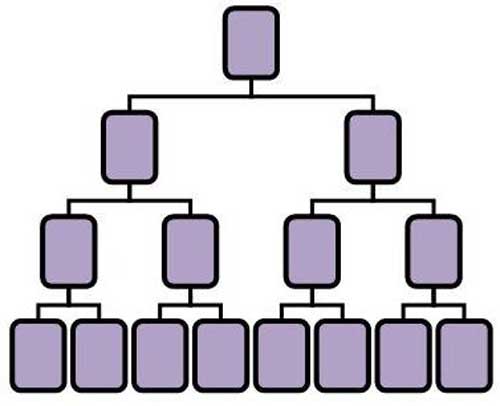CarCoin Review: CSC points ICO lending Ponzi scheme
 CarCoin provide no information on their website about who owns or runs the business.
CarCoin provide no information on their website about who owns or runs the business.
The CarCoin website domain (“mycarcoin.com”) was privately registered on September 27th, 2017.
At the time of publication Alexa estimate that 67% of all traffic to the CarCoin website originates out of Vietnam.
Pretty much all of the CarCoin marketing material I came across was also in Vietnamese.
This strongly suggests that whoever is running CarCoin is also likely based or at the very least operating out of Vietnam.
As always, if an MLM company is not openly upfront about who is running or owns it, think long and hard about joining and/or handing over any money.
CarCoin Products
CarCoin has no retailable products or services, with affiliates only able to market CarCoin affiliate membership itself.
The CarCoin Compensation Plan
CarCoin affiliates acquire pre-generated CSC points from the company’s anonymous owners.
CSC points are sold to CarCoin affiliates for 30 to 90 cents each.
Once acquired, CSC points are “lent” back to CarCoin on the promise of a monthly ROI of up to 24%:
- invest $200 to $1000 and receive a variable daily ROI for 299 days
- invest $1010 to $10,000 and receive a variable daily ROI plus 0.1% bonus daily ROI rate for 239 days
- invest $10,010 to $50,000 and receive a variable daily ROI plus 0.15% bonus daily ROI rate for 179 days
- invest $50,010 to $100,000 and receive a variable daily ROI plus 0.2% bonus daily ROI rate for 120 days
Note that 40% of ROI payments must be reinvested into new CSC points.
Resdual Referral Commissions
CarCoin pay residual referral commissions via a binary compensation structure.
A binary compensation structure places an affiliate at the top of a binary team, split into two sides (left and right):

The first level of the binary team houses two positions. The second level of the binary team is generated by splitting these first two positions into another two positions each (4 positions).
Subsequent levels of the binary team are generated as required, with each new level housing twice as many positions as the previous level.
Positions in the binary team are filled via direct and indirect recruitment of affiliates. Note there is no limit to how deep a binary team can grow.
At the end of each week CarCoin tally up new investment volume on both sides of the binary team.
Residual referral commissions are paid as 10% of matched funds on both sides of the binary team.
Leftover volume on the stronger binary side is carried over the following day.
Joining CarCoin
CarCoin affiliate membership is free, however free affiliates can only earn referral commissions.
Full participation in the CarCoin MLM opportunity requires a minimum $200 investment.
Conclusion
In a paper-thin attempt to detail an external ROI revenue source, CarCoin presents itself as a ride-sharing app (think Uber or Lyft).
Mycar is a Blockchain technology platform. Our smartphone apps connect driver-partners and riders.
As soon as you register for the service, you will be given a Cryptocurrency Wallet right on your application.
The payment is very flexible. You can use Cash, Card or Cryptocurrency for payment.
The MyCar app however doesn’t exist, with what’s actually available no different to any other ICO lending Ponzi scheme.
The only verifiable source of revenue entering CarCoin is new affiliate investment. In the absence of another verifiable ROI revenue source, newly invested funds are used to pay both a daily ROI and pyramid recruitment commissions.
Lending ICO Ponzis like CarCoin play out as follows:
Admins (who are typically anonymous) offload worthless pre-generated points in exchange for real money. In this case it’s CSC points.
CarCoin’s admins then use some of this money to pay promised ROIs for as long as new affiliates sign up.
Once affiliate recruitment dries up so does CarCoin’s ROI reserve.
When a predetermined threshold is reached, CarCoin’s anonymous admins do a runner with what’s left.
Early CarCoin investors make a bit of money (mostly via recruitment of new investors). But same as any other Ponzi scheme, the reality of such scams is that the majority of participants eventually lose money.
BitConnect and DavorCoin are recent examples of ICO lending Ponzi collapses in action.


The CEO behind Carcoin would be Renze Deelstra, if we look at the website and the whitepaper.
Renze Deelstra is a known Dutch serial ponzi/pyramid scammer. He’s most known for the Flexkom scam that ruined lots of people back in 2013/2014.
He was the Country Manager for the Netherlands. Before that, he ran many other scams.
If we take a look on the Carcoin facebook page, we can see that Carcoin is no longer paying out commissions. The ponzi appears to have collapsed.
No suprises here.
Serial scammer Renze Deelstra has started a new scam, which is more or less a reboot of CarCoin.
Renze has all of a sudden become a ‘crypto expert’, just as many other MLM scammers have. Now, he has CSCjackpot, which is a BTC lottery tied to a pyramid/ponzi scheme.
This is one of those stupid script-driven crypto lottery scams.
Other than the use of CSC (you can code these things to use any crypto), CSC Jackpot itself is not MLM as far as I can see (unless I’m missing something).
From their homepage:
JOIN NOW link refers to the signup page of mycarcoin.
MyCarCoin == CarCoin.